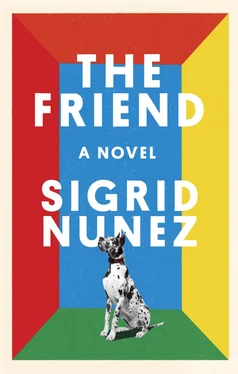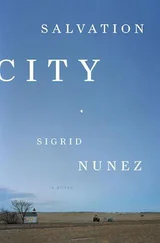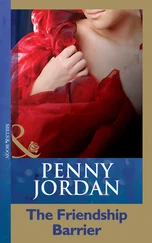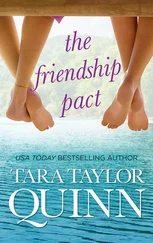When you heard this, you were indignant: I should’ve told him that back when he asked me to write him a letter for the Guggenheim.
Soon after the semester begins, he gives a reading at a Barnes & Noble. The fact that the audience is sparse does not discourage him; he reads for the good part of an hour.
During the Q&A, when someone asks why his book, whose form is highly unconventional, is called a novel, he responds, It’s a novel because I say it is.
During the signing, a woman urges him to write another book as quickly as possible. Because, you know, she says earnestly, there’s nothing out there.
In Barnes & Noble.
• • •
In the news: Thirty-two million adult Americans can’t read. The potential audience for poetry has shrunk by two-thirds since 1992. A “rent-burdened” woman worrying how she’s going to survive in New York City decides to try writing a novel (“and that’s going well”).
Wife One lives abroad. She had flown to New York for the memorial event, and one night before she flew home she and I went out to dinner.
“I know it’s worse for you,” she said kindly. “We were married, but that was so long ago. And after it was over, nothing. No friendship, no contact, nothing. That’s how it had to be. And I’ll be honest, at first I thought I wouldn’t even go to the memorial. But then I thought, you know, closure. Whatever that means.”
When it’s suicide, someone at the memorial said, there can be no closure.
“But you,” she said. “You two were such good friends for so long. How I used to envy that. I used to think, if only he and I hadn’t fallen in love, then we could have had a friendship like that!”
But there’d been no resisting, had there. A love so potent it might have been the effect of a spell. One of those grand passions given only to some to experience, the rest to hear tell and dream about.
Even now it has the force of legend for me: beautiful, terrible, doomed.
I remember when being near the two of you was like being near a furnace. And I remember thinking, when things went wrong, that one or the other of you was going to end up dead. You yourself said it sometimes felt like you were doing something forbidden, even criminal. And she, raised Catholic, was convinced that such idolizing love had to be a sin. And, of course, in the end it was this that drove Wife Two to despair: not all your womanizing but the belief that such love doesn’t come twice in a life, that whatever you felt for her could not equal what you’d felt for Wife One, who, she would always fear, still had your heart.
If only we hadn’t fallen in love: she said it over and over.
“I was just thinking about it on the cab ride here. Remember how we worshipped him? How we were all his little groupies? What did they call us back then?”
“A literary Manson family.”
“Oh God, yes. Ugh. How could I forget.”
Remember how we hung on your every word and ran out and bought every book or album you mentioned.
Remember how everything we wrote was some pathetic imitation of you.
Remember how you had us believing that one day you’d win the Nobel Prize.
Now he’s just another dead white male.
He did all right, I said. He did better than most writers.
“But I hear the last couple of years he didn’t write much.”
No.
“Did he seem that depressed? Did he talk about it? I’m not just asking, it’s been keeping me up nights. Why did he quit teaching?”
I recite your various gripes, which were not much different from those heard every day from other teachers: how even students from top schools didn’t know a good sentence from a bad one, how nobody in publishing seemed to care how anything was written anymore, how books were dying, literature was dying, and the prestige of the writer had sunk so low that the biggest mystery of all was why everyone and their grandmother was turning to authorship as just the ticket to glory.
I tell her about your loss of conviction in the purpose of fiction—today, when no novel, no matter how brilliantly written or full of ideas, was going to have any meaningful effect on society, when it was impossible even to imagine anything like what had led Abraham Lincoln to say, meeting Harriet Beecher Stowe, in 1862, So you’re the little woman who wrote the book that started this great war.
If Abraham Lincoln really did say that.
That’s when I remember the interview.
How strange to have forgotten it, even for a time. The interview, which it now occurs to me was probably your last, for the inaugural issue of a midwestern literary journal.
The interview in which you made a prediction that there would be a wave of suicides among writers.
And when do you see this happening?
Soon.
I remember being surprised that you hadn’t mentioned that interview, which I might have missed altogether if another friend hadn’t forwarded it to me.
I didn’t mention it because I was embarrassed. It occurred to me later how it would sound—melodramatic, self-pitying. I’d had a few drinks.
I remember the interviewer asked the usual question about audience, whether you wrote with a particular reader in mind. Which set you off about the relationship between writer and reader and how much that relationship had changed. As a young writer you’d been told, Never assume your reader isn’t as intelligent as you are. Advice you’d taken to heart. You wrote with that reader in mind, you said, someone as smart as—or why not even smarter than!—yourself. Someone intellectually curious, who had the habit of reading, who loved books as much as you did. Who loved fiction. And then, with the internet, had come the possibility of reading the responses of actual readers, among whom you were pleased to find some who did indeed match, more or less, the reader in your head. But there were others—not just one or two but quite a number when you added them up—who had misread, or misunderstood, in some cases quite seriously, what you’d said. Troubling enough when the reader was someone who’d hated the book, but that was far from always the case. Like other writers, you now found yourself regularly damned or praised for things that had never occurred to you, things you had never expressed and never would express, things that represented pretty much the opposite of what you actually believed.
All this, you said, had thrown you for a loop. Because, although you knew you were supposed to be glad for each and every copy of a book that was sold, and you knew you were supposed to feel grateful for any reader, who after all might have chosen to read any one of millions of other books instead of yours, you honestly found it hard to be happy about a reader who got things all wrong, you honestly would just as soon a reader like that ignore your book and go read something else.
But hasn’t it always been this way?
No doubt. But in the past the writer didn’t have to know, the problem wasn’t right there in your face.
But what about “Trust the tale not the teller,” and how the critic’s job is to save the work from the writer?
By “critic,” you know, Lawrence did not mean self-appointed. I would love to see the consumer review that saved a book from its author.
Well, if I could just play devil’s advocate here: Let’s say I invite someone to dinner and cook them a fabulous beef stew and they gobble it up and say, Wow, yum, that’s the best lamb stew I ever had! So what? Isn’t the main thing that they enjoyed it?
Oh, were we talking about dinner? Well, let me say this: I don’t take it lightly if when I write the word beef someone chooses to read lamb . People talking about a book as if it were just another thing, like a dish, or a product like an electronic device or a pair of shoes, to be rated for consumer satisfaction—that was just the goddamn trouble, you said. Even those aspiring writers your students seemed never to judge a book on how well it fulfilled the author’s intentions but solely on whether it was the kind of book that they liked. And so you got papers stating things like “I hate Joyce, he’s so full of himself,” or “I don’t see why I should have to read about white people problems.” You got customer reviews full of umbrage, suggesting that if a book didn’t affirm what the reader already felt—what they could identify with, what they could relate to—the author had no business writing the book at all. Those hilarious stories that people loved, and loved to share—the book clubber who said, When I read a novel I want someone to die in it; the complaint against Anne Frank’s diary, in which nothing much happens and then the story just breaks off—did not make you laugh. Oh, you knew that a lot of people, including other writers, would accuse you of being precious. Some would say that, after all, the one sure way for an artist to know his work had failed was if everyone “got” it. But the truth was, you had become so dismayed by the ubiquity of careless reading that something had happened that you had thought never could happen: you had started not to care whether people read you or not. And though you knew your publisher would spit in your eye for saying so, you were inclined to agree with whoever it was who said that no truly good book would find more than three thousand readers.
Читать дальше












